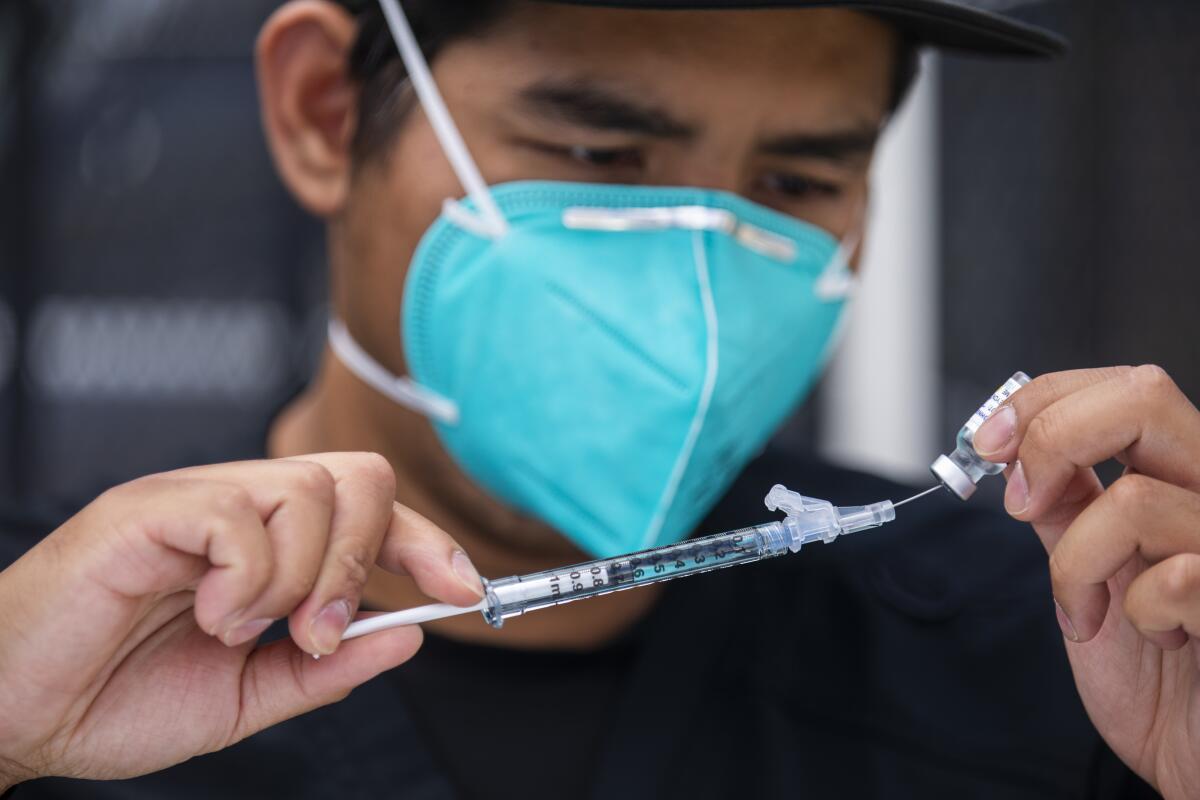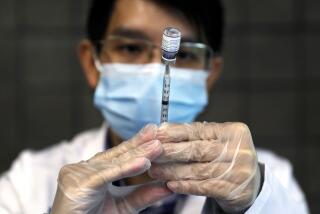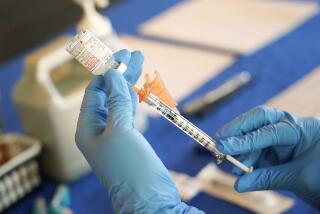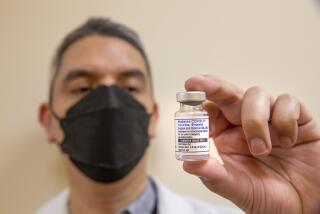Editorial: What’s better than a third vaccine dose? A first dose

- Share via
There is only one reason, many scientists say, why a booster shot of one of the mRNA vaccines could make sense as public health policy: Not to safeguard the vaccinated, who are still getting robust protection from their first two doses, but to protect the unvaccinated around them from COVID-19.
That’s because the very high viral load of the Delta variant makes transmission of the coronavirus more likely, even from vaccinated people.
But if the main benefit of a third dose is protecting the unvaccinated, science already offers a much better way: Get the first doses into those who have been slow or resistant in terms of becoming inoculated, rather than a third dose into vaccine adopters. And when the federal government determines that children younger than 12 can safely be vaccinated, that will be another big group to get to safety.
From the start, too much of our response to COVID-19 has been governed by our personal fears rather than on sound policies. It’s understandable that fully vaccinated Americans will want to maximize their protection with a third dose, though it’s still not known exactly how effective that jab would be. Data from Israel — the first nation to vaccinate a majority of its population, mostly using the Pfizer-BioNTech vaccine — show that protection from infection wanes over months and with the advent of the Delta variant. On Wednesday, the U.S. Centers for Disease Control and Prevention released similar findings. So the concern makes sense.
But infection isn’t the same as having a life-threatening case of the disease. Hospitalization and death rates among the vaccinated have risen somewhat, but remain exceedingly low. The antibodies from the Pfizer vaccine are very effective against the more contagious Delta variant.
One strange fact that many people have forgotten: The original goal of COVID-19 vaccine production was not to keep people from being infected. It was to protect them from death or serious harm. It just happened that the vaccines were also remarkably effective at warding off infection in the first place and now that’s become an expectation. Vaccination is still tremendously effective at the original goal.
There are exceptions. People with severely compromised immune systems need a leg up on resistance to COVID-19, and an emerging body of evidence indicates that older adults are at increased risk of hospitalization and/or death. But at this point, providing third doses to the general population is a lot of bucks for a relatively small bang.
Want to really bring down hospitalizations and deaths from Delta? Once the Pfizer vaccine secures U.S. Food and Drug Administration approval, which is now expected by Labor Day, that opens the legal door to widespread vaccine mandates. Vaccinations are required, starting with federal employees and anyone who wants to travel by airline. The nation’s biggest employers, such as Walmart and Amazon, should be planning to impose them now.
President Biden got that off to the right start Wednesday by announcing that nursing homes had to require vaccination of their staffs or forgo federal funding. The Los Angeles City Council voted to require vaccination of its own staff, a week after the L.A. Unified school system made the same requirement.
And rather than providing a little more protection to people who already are pretty safe from a deadly case of COVID-19, the Biden administration should be spending more of its vaccine-purchasing power on doses for nations where the shots have simply been unavailable. Only now is Haiti getting the first vaccines delivered; its rate of fully vaccinated people is zero.
Shipping doses internationally is more than just a kindness to other countries. Viruses don’t respect national boundaries; one of the best ways to protect ourselves is to help protect the world.
It’s not dangerous for people to get third doses in a month or so; any side effects are expected to be about the same as they were for the first two. Nor is it immoral, especially for those in special circumstances, such as healthcare workers and the immune-compromised. Existing doses of the Pfizer-BioNTech vaccine are in place and not headed overseas.
But as the nation continues investing in vaccine production, the most effective use of those vaccines for now is first doses, and then second ones, not third. The easy work of vaccinating the willing and those with access is done. The real trick is in figuring out how to get those needles to reach billions of untouched arms.
More to Read
A cure for the common opinion
Get thought-provoking perspectives with our weekly newsletter.
You may occasionally receive promotional content from the Los Angeles Times.










